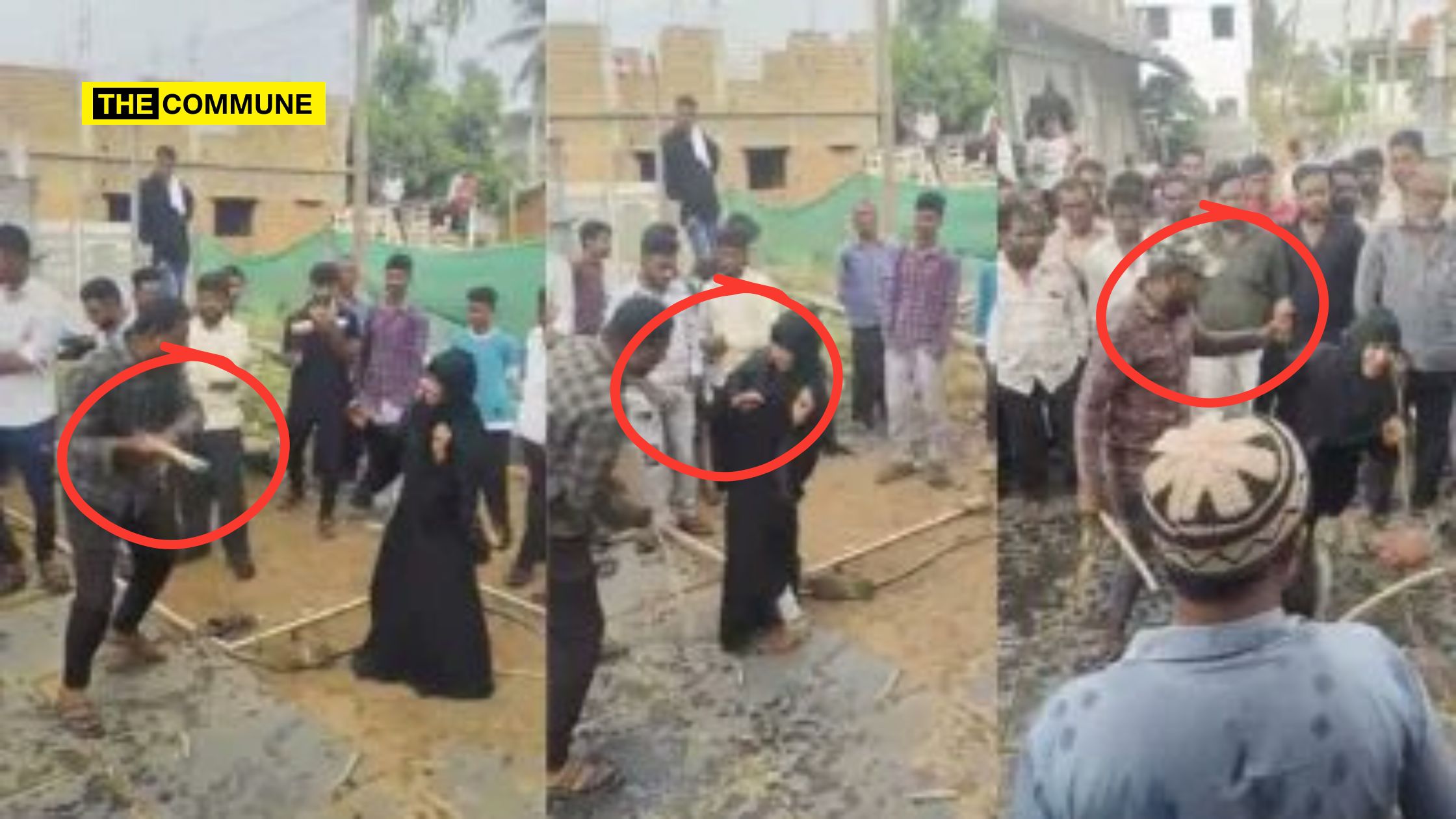
A 38-year-old woman was allegedly assaulted by a group of men outside a mosque in Karnataka’s Davanagere district after being summoned there over a domestic dispute. The incident, which took place on 9 April 2025 in Tavarekere village of Channagiri taluk, was caught on video and sparked outrage after the footage circulated on social media platforms.
The victim, Shabina Banu, who works as a house help, filed a police complaint on 11 April 2025, following which six individuals were arrested. The accused, identified as Mohammad Niyaz (32), Mohammad Gauspeer (45), Chand Basha (35), Dastagir (24), Rasool T. R. (42), and Inayat Ullah (51), were named in the First Information Report (FIR). According to police, a special investigation team (SIT) was formed and quickly traced and apprehended the suspects.
This is not Taliban in Afghanistan, but India.
A group of men brutally beat a woman named Shabina Banu with sticks & pipes outside a Mosque in Karnataka's Davanagere, after her husband complained against her in Mosque over a domestic dispute.
Since when did a Mosque become a… pic.twitter.com/sTlQOr4SMp
— Anshul Saxena (@AskAnshul) April 15, 2025
What Happened?
In her complaint, Shabina stated that on 7 April 2025, her relative Nasreen (32) visited her home. Along with Nasreen and another man, Fayaz, the group went to a nearby hill in Bukkambudi and returned the same evening. Shabina, following medical advice, took her medication and rested. Nasreen, who initially said she would leave, stayed at the house. Fayaz also visited during this period.
Later, Shabina’s husband, Jameel Ahmed Shameer, returned home and reportedly grew enraged upon finding Nasreen and Fayaz at the residence. He then approached the local Jama Masjid in Tavarekere and filed a complaint.
Two days later, on 9 April 2025, Shabina, Nasreen, and Fayaz were summoned to the mosque. When they arrived, a group of men allegedly gathered and began verbally abusing Shabina. According to the FIR, the accused used obscene language, threatened her and her children, and then proceeded to brutally assault her using sticks, clubs, pipes, and even attempted to hit her with stones. Shabina’s children were also allegedly slapped and kicked during the assault.
The woman described the incident as an attempt to intimidate and physically harm her, stating that she was left humiliated, injured, and mentally disturbed.
Theft Allegations
Shabina further alleged that after the assault, Nasreen and another woman named Parveen entered her home and stole several items, including a television, mobile phone, charger, and household goods. In her detailed complaint, she described seeing a crowd gathered near the mosque on the day of the assault and recounted that her husband claimed to be heading to the area shortly before the attack.
Police Action And Charges
Based on her complaint, police registered a case under multiple sections of the Bharatiya Nyaya Sanhita (BNS), including charges related to criminal conspiracy, assault, intimidation, and attempted murder. The SIT, formed soon after the incident gained public attention, arrested all six named accused.
Davanagere Superintendent of Police has confirmed that a thorough investigation is ongoing, and more arrests could follow depending on further evidence.
This incident has raised renewed concerns over the use of religious spaces for extra-judicial resolutions of personal or domestic matters. Legal experts and women’s rights activists have voiced concerns about vigilante justice and the potential misuse of religious influence to settle personal disputes outside the purview of law.
The case also draws parallels to earlier incidents, such as the 2023 Chopra flogging case in West Bengal, where a woman was publicly beaten in a mosque-led assembly over alleged extramarital relations. That incident, too, was captured on video and had drawn nationwide condemnation.
Critics have pointed to the growing trend of parallel justice systems functioning outside the constitutional framework, including informal Sharia courts, mosque-led arbitration, and public boycotts. They argue that such parallel systems often undermine the rule of law and disproportionately affect vulnerable members within the community, particularly women.
In 2018 and 2023, the All India Muslim Personal Law Board (AIMPLB) reiterated its intention to expand Darul Qaza (Sharia courts) across districts with significant Muslim populations. While these courts do not hold constitutional or legal authority, their informal influence continues in many regions.
Subscribe to our channels on Telegram, WhatsApp, and Instagram and get the best stories of the day delivered to you personally.




